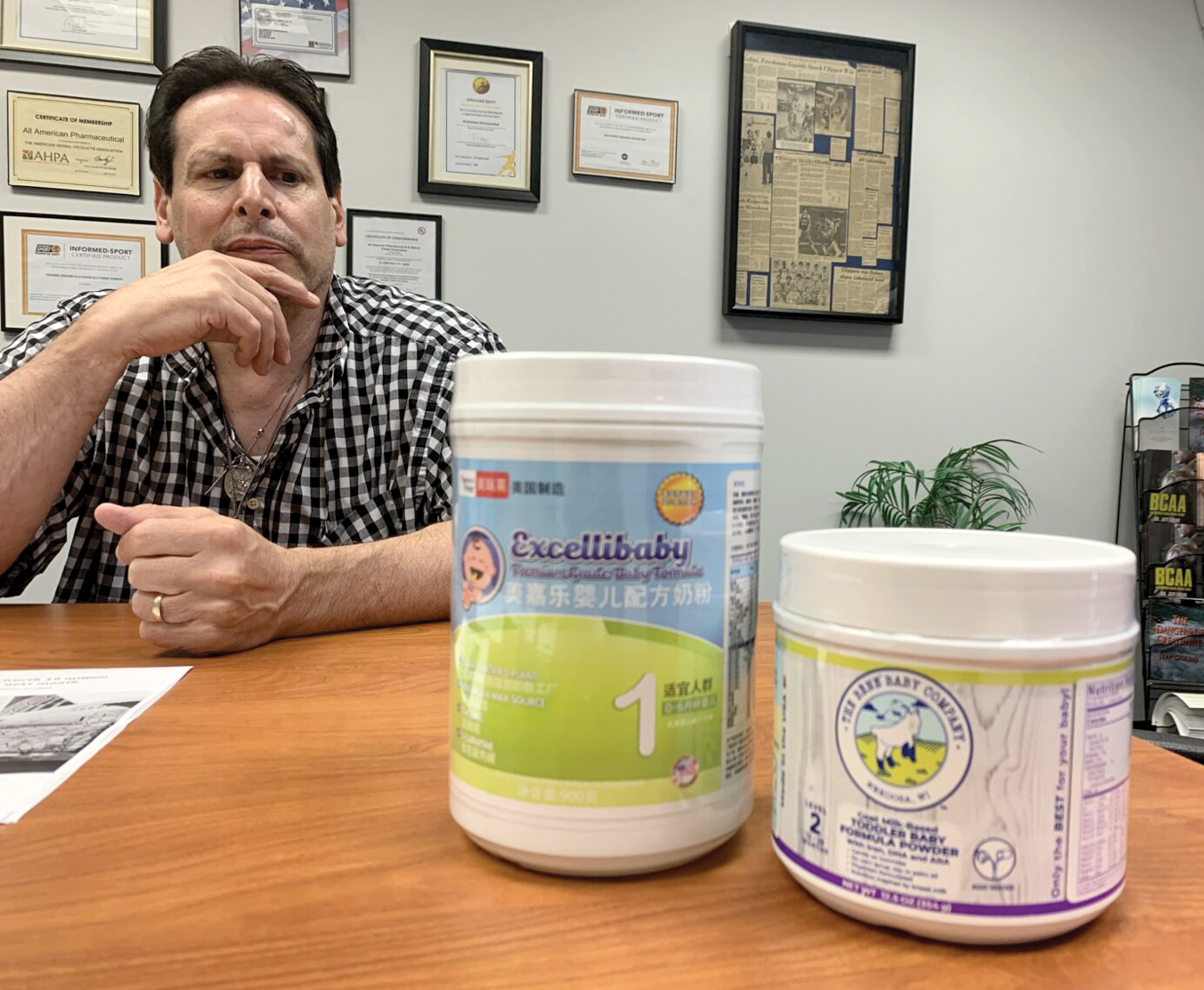FDA Rules Stop Local Company from Helping Formula Shortage
By Darrell Ehrlick/Daily Montanan
Reprinted from the Missoula Current
As America continues to scramble for more baby formula following a Michigan plant shutdown that hobbled the nation’s supply, a Montana manufacturer in Billings stood by, ready to ramp up production only to be stymied by federal red tape, and then watched the market welcome foreign products.
Jeff Golini is the owner and executive scientist at All American Pharmaceuticals. In addition to inventing and manufacturing a number of proprietary sports supplements and products, his company contracts with a number of other companies to manufacture products, including baby formula for export to China.
The facility with a substantial footprint in Billings Heights is FDA certified and approved. It’s even certified by the Chinese government for making products for that country. He has the required formulary the U.S. government mandates for baby and infant formula (baby formula is for 0 to 12 months, while infant formula is for children older than 12 months).
He had the information.
He had the capacity.
He holds a doctorate.
He only lacked the approval for manufacturing his own brand of formula while watching the FDA relax standards to allow importing foreign products under an emergency order.
Golini said that the U.S. government via the FDA has a strict set of rules for baby formula. Its formulary includes the minimum amounts of vitamins and minerals, as well as what ingredients can be included, for example, the percentages of protein that must be part of any mixture.
Think of it as a sort of recipe for baby formula without much room for deviation. Golini said he understands the rationale: Food made specifically for babies should be closely regulated and monitored, especially since their digestive and immune systems are not fully developed.
And that’s exactly why he was shocked to see the FDA in a May bulletin lower standards.
Following the FDA’s own set of guidelines, Golini proposed ramping up production of baby formula, but was stopped when he was told if he wanted to manufacture his own product, it would have to go through strict testing and trials, which could take months, if not years, and cost hundreds of thousands of dollars.
He has access to the raw ingredients, approval to manufacture, and can even make similar products for other companies, but he cannot produce and market it himself without a cascade of rules and testing.
A spokeswoman for the FDA confirmed that Golini is a qualified manufacturing facility and could not start production without testing. Last week, ABC News reported that Bubs Australia, Danone, Kendamil products continue to arrive in America for distribution under the “Operation Fly Formula” plan by the Biden administration.
Golini said it’s unfair that the federal government has relaxed rules for international companies while making it harder for domestic companies.
On the FDA website, which outlines the rules for importing formula, it said “infant or baby formula may be imported to the United States without prior sanction by the FDA as long as the facilities that produce store, or otherwise handle the products are registered with the FDA.”
All American Pharmaceuticals exceeds those requirements, and has even developed a formula recipe that uses the stringent FDA guidelines.
“They tell you what to make and exactly how to make it,” Golini said.
Golini’s plight has caught the attention of Sen. Steve Daines, Montana’s Republican senator. Golini told the Daily Montanan that Daines sent a letter to the FDA, advocating for All American pharmaceutical.
The Daily Montanan reached out to Daines’ office to find more information, but the office did not respond.
“Now that they’re importing it, they’re not checking the quality and that the formulas meet the USA’s standards that are coming from China or Europe – and they have lower standards,” Golini said. “We’ll have sick babies because we lowered them.”
Big pharma, big money
Golini said part of the problem is a limited number of large pharmaceutical companies who have cornered the market on domestic baby formula. He said the issue of shortages is more complex than just a plant in Michigan that had contaminated formula.
Instead, he said the shortage was on the horizon as early as February, long before shortages on the shelves of American stores.
He said that large formula manufacturers have blamed the problem on a limited number of facilities or shortages with the supply chain, but Golini said the raw products to make formula are available. And with all the formula being imported from far away places like New Zealand, he said the only shortage that exists is American infant formula.
Golini explained that American infant formula fetches a premium worldwide because of its quality and the cachet of being an American product. High demand in foreign markets like China means that large multi-national corporations that control most of the domestic market can often sell the formula for a higher price and more profits internationally.
“So this narrative of shortages is a façade – they’re selling all of the formula,” he said.
He suspects that smaller manufacturing facilities like his are being stymied by red tape, and regulations meant to reduce competition in a market that is not just captive, but one in which large corporations are enjoying greater profits by charging higher prices.
“I understand that if I develop something brand new, I need to do a study,” said Golini, who holds two patents for products he developed. “And I am reading that American companies need to step up. Well, that’s not working.”


0 comments